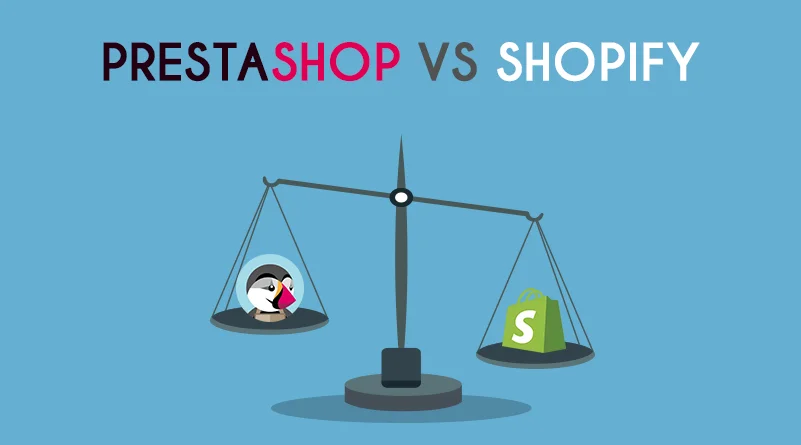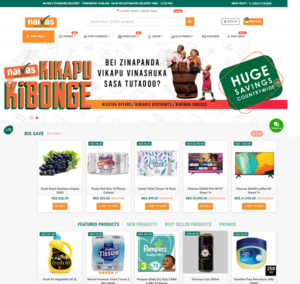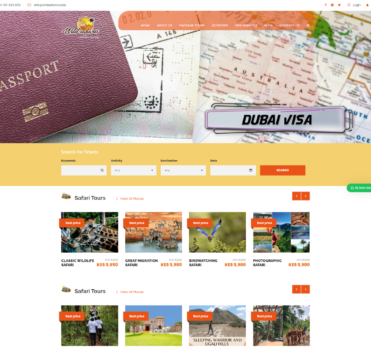
Introduction
Kenya is one of Africa’s most connected countries. With over 13 million active social media users and growing, platforms like Facebook, Instagram, TikTok, LinkedIn, and X (Twitter) have become powerful tools for businesses. For small businesses, social media offers a low-cost way to build brand awareness, engage customers, and drive sales.
However, success on social media requires more than just posting random updates. Without a strategy, businesses risk wasting time and resources. This article explores proven social media strategies that Kenyan small businesses can use to stand out, attract loyal customers, and compete with bigger brands.
Why Social Media Matters for Small Businesses in Kenya
I. Massive Reach
Social media gives small businesses access to millions of potential customers at a fraction of traditional advertising costs.
II. Direct Customer Engagement
Unlike TV or radio, social media allows businesses to interact with customers in real-time, answering questions and building relationships.
III. Cost-Effective Marketing
With as little as KSh 500, businesses can run targeted ads that reach specific audiences based on location, age, or interests.
IV. Leveling the Playing Field
Small businesses can compete with larger companies by building authentic connections and leveraging creativity.

Social Media Strategies for Kenyan Small Businesses
1. Define Clear Goals
Before posting, businesses should identify what they want to achieve. Goals may include:
Increasing brand awareness.
Driving traffic to a website or online shop.
Generating sales leads.
Improving customer service.
Clear goals guide the type of content created and the platforms used.
2. Choose the Right Platforms
Not every platform suits every business. For example:
Facebook & Instagram → Best for retail, restaurants, and local services.
TikTok → Great for creative, short videos that go viral (fashion, food, entertainment).
LinkedIn → Effective for B2B companies, consultants, and professional services.
X (Twitter) → Useful for quick updates, trending discussions, and brand personality.
3. Create Quality Content
Content is the heart of social media success. Businesses should focus on:
I. Educational content – Tips, guides, or how-to posts.
II. Entertaining content – Memes, behind-the-scenes videos, or fun challenges.
III. Promotional content – Product showcases, discounts, or special offers.
IV. User-generated content – Encouraging customers to share photos and reviews.
4. Use Consistent Branding
Profile photos, bios, logos, and brand colors should be consistent across platforms to build recognition and trust.
5. Leverage Local Culture
Kenyan audiences love content they can relate to. Using Swahili, Sheng, or local trends in campaigns makes the brand more relatable and engaging.
6. Engage, Don’t Just Post
Social media is about conversations. Small businesses should:
Reply to comments and DMs quickly.
Ask questions and encourage feedback.
Join trending hashtags relevant to Kenya.
7. Run Targeted Ads
Even with a small budget, paid advertising can reach thousands of potential customers. Facebook and Instagram allow location-based targeting, making it easier for small businesses to reach local buyers.
8. Collaborate with Influencers
Partnering with micro-influencers (with 5K–50K followers) is often more effective and affordable than big influencers. They have strong connections with their niche audiences.
9. Track Performance with Analytics
Businesses should monitor what works and what doesn’t by using tools like:
Facebook Insights
Instagram Analytics
Google Analytics (for websites linked to social media)
Metrics like engagement, reach, and conversions show if the strategy is effective.
Kenyan Business Examples
I. Local Fashion Brands
Many Kenyan clothing lines grow fast on Instagram and TikTok by showcasing outfits through reels, influencer collaborations, and seasonal promotions.
II. Restaurants & Cafés
Restaurants in Nairobi use Facebook ads to promote offers and TikTok to share behind-the-scenes cooking videos that go viral.
III. Agri-Business Startups
Farmers’ cooperatives use WhatsApp groups and Facebook pages to connect directly with customers, eliminating middlemen.
IV. Professional Services
Law firms and consultants leverage LinkedIn to establish authority, share insights, and attract corporate c
lients.
FAQsQ1: How often should small businesses post on social media?
At least three times a week, but consistency matters more than frequency.
Q2: Which social media platform is best for small businesses in Kenya?
It depends on the business. Retail and food brands thrive on Instagram and Facebook, while B2B firms do better on LinkedIn.
Q3: Do small businesses need to pay for ads?
Organic growth is possible, but running ads boosts reach and conversions significantly.
Q4: Can I manage social media without hiring an expert?
Yes, but hiring professionals like E-Startups Kenya saves time and ensures strategies are effective.
Q5: How long before I see results?
Social media growth takes time. With consistency, most businesses see noticeable results within three to six months.
Conclusion
Social media is no longer optional for small businesses in Kenya—it is a necessity. With the right strategies, even startups with limited budgets can reach wide audiences, build customer loyalty, and increase sales.
At E-Startups Kenya, we specialize in helping businesses design and execute powerful social media strategies that drive growth. From content creation to targeted advertising and analytics, we ensure your brand thrives online.
👉 Ready to take your business to the next level? Contact E-Startups Kenya today for expert social media management tailored to Kenyan businesses.




























